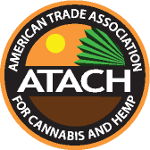Pennsylvania
- Overview of Cannabis and Hemp Laws
Cannabis:
- Recreational Use: Recreational cannabis is illegal in Pennsylvania, with possession subject to penalties under state law.
- Medical Use: Legal since 2016 under the Medical Marijuana Act (PA General Assembly, Act 16), allowing cannabis for patients with qualifying medical conditions.
Hemp Intoxicants and Synthetic THC: Pennsylvania is classified as Unregulated/Gray Market for hemp intoxicants, meaning no specific regulations exist for products like delta-8 THC.
- Historical Context
- 2016: Pennsylvania enacts the Medical Marijuana Act (Act 16), legalizing medical cannabis for specific conditions.
- 2018: Industrial hemp is federally legalized via the 2018 Farm Bill, impacting Pennsylvania’s hemp policy.
- 2021–Present: Ongoing discussions in the General Assembly address potential recreational legalization, though no bills have passed.
- Recreational Cannabis Laws
- Possession Limits: Possession of up to 30 grams is a misdemeanor, punishable by a maximum of 30 days in jail and a $500 fine.
- Cultivation: Home cultivation of cannabis is not allowed.
- Public Use: Prohibited, as recreational cannabis remains illegal.
- Sale and Retail: Only licensed medical dispensaries may operate; recreational cannabis sales are not permitted.
- Medical Cannabis Laws
- Patient Eligibility: Pennsylvania’s program includes over 20 qualifying conditions, such as chronic pain, epilepsy, PTSD, and cancer.
- Product Access: Patients can access cannabis in forms like pills, oils, tinctures, and topical applications; smokable cannabis is restricted.
- Program Details: Patients need a medical marijuana card issued by the Pennsylvania Department of Health, and all purchases must be from licensed dispensaries. Home cultivation by patients or caregivers is prohibited.
- Hemp-Derived Intoxicants
- Regulatory Status: Pennsylvania’s Unregulated/Gray Market status means delta-8 THC and other hemp intoxicants lack targeted regulations.
- Testing and Labeling: No mandatory testing or labeling is required for these products; general consumer protection laws apply.
- Age and Retail Restrictions: There are no specific age restrictions or retail limitations for hemp intoxicant sales in Pennsylvania.
- Criminal Penalties for Cannabis Offenses
- Possession: Possession of up to 30 grams is a misdemeanor with a potential penalty of up to 30 days in jail and a $500 fine. Higher quantities or repeat offenses incur more severe penalties.
- Sale and Distribution: Unauthorized sale of cannabis is a felony, with penalties up to 5 years in prison and a $15,000 fine for amounts over 30 grams.
- Trafficking and Cultivation: Cultivation outside of the medical framework is illegal. Trafficking offenses are penalized by quantity, with significant prison terms and fines.
- Social Equity Programs
- Eligibility Criteria: Pennsylvania currently has no cannabis-specific social equity programs. Legislative discussions have occasionally included social equity proposals, but no laws have been enacted.
- Licensing Benefits: No preferential licensing or fee reductions for social equity applicants are available.
- Additional Support: No state-funded grants, training, or other support programs exist specifically for social equity in cannabis.
- Business Types and Operations
- Licensing Types: Pennsylvania licenses medical cannabis dispensaries, grower/processors, and clinical registrants under the medical marijuana law.
- Regulatory Requirements: Licensed businesses must meet stringent standards for security, record-keeping, and product tracking, enforced by the Pennsylvania Department of Health. Requirements include staff training and comprehensive reporting protocols.
